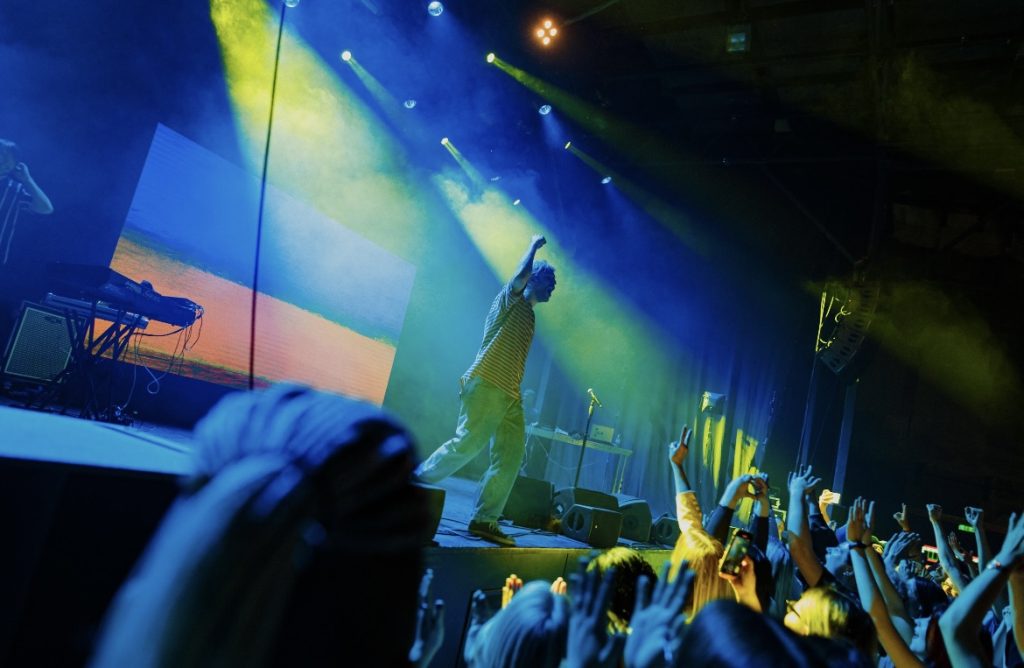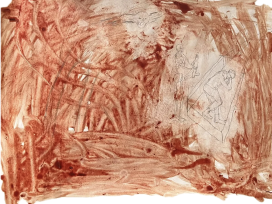In 1827, while walking in the Sparrow Hills above Moscow, the poet Nikolay Ogarev (1813–1877) and the writer and philosopher Alexander Herzen (1812–1870) made an oath to one another that they would dedicate their lives to the struggle for freedom in Russia. Some years later, persecuted by a repressive state, both ended up emigrating to Europe, where they continued their efforts in exile. The British historian Edward Hallett Carr covered this story of mid-19th century Russian political and cultural emigration in his 1949 book The Romantic Exiles; today it is relevant once again. Within just a year of Russia’s military invasion of Ukraine in February 2022, more than a million Russian citizens had left the country for destinations around the world.
This flight from the brutal authoritarianism of the Putin regime marks the fifth wave of Russian emigration since the Bolshevik Revolution in 1917 and the second since the collapse of the Soviet Union in 1991. ‘This exodus is a terrible blow for Russia’, historian Tamara Eidelman, who moved to Portugal after the invasion, told The Washington Post in February 2023. ‘The layer that could have changed something in the country has now been washed away’. For political as well as economic reasons, the military mobilisation carried out in the autumn of 2022 only further spurred the departure of young and highly educated people from Russia.
An important part of this modern Russian diaspora is made up of cultural workers and artists. With its war in Ukraine, the Russian regime has devastated independent and non-state culture in Russia. The closing of cultural institutions, such as Moscow’s Gogol Center in June 2022, goes hand-in-hand with harsh repression, nipping in the bud and suppressing public opposition and protests against the war in Ukraine, which citizens are not allowed to call anything other than a ‘special military operation’.
Novaya Gazeta reports that over the course of 2022, about 20,000 Russian citizens were imprisoned for expressing public opposition to the war, and are now awaiting sentencing or already serving multi-year prison terms. Even now, not a day goes by without new arrests, prosecutions, trials, sentences and conscription into the army. Putin’s regime has been declaring many public figures and organisations to be ‘foreign agents’ for a long time, banning them from public appearances and activities, while the police consistently respond to complaints and use special units to break up cultural events, as they did in early November 2023 just before the scheduled start of a concert by the band Zero People in St. Petersburg.
Cooperation and exchange
Up until 24 February 2022, the Ukrainian and Russian music scenes were intertwined – in fact, they were essentially one. Following the collapse of the Soviet Union, Ukrainian musicians were active members of the Russian music scene and regular and popular guests on stages across Russia, and vice versa. In the early years of the 21st century, one of the most popular Russian-language pop projects was VIA Gra, a girl group founded in Kyiv; Ukrainian artists 5’nizza, Verka Serduchka and BoomBox sang in Russian and Ukrainian and had a loyal fanbase in both countries.
The success of singer Ruslana at Eurovision in 2004 gave impetus to a new wave of Ukrainian names, ridden by the likes of Yolka, Potap & Nastya, Quest Pistols, and then in 2012 by Ivan Dorn, who rose to the top of the Russian charts and stages. His debut album Co’n’Dorn today ranks among the most critically acclaimed post-Soviet albums, topping a list of the best LPs from 1991 to 2021 compiled by the online Russian culture site Afisha Daily, ahead of records by Russian groups Kino, Auktsyon and t.a.T.u.
Its success encouraged other compatriots such as Max Barskih, Svetlana Loboda, Vremya i Steklo, Monatik, Artik & Asti, Alekseev, and Luna, who also captivated Russian audiences in Russian, and brought a fresh and different energy to the music scene in the middle of the last decade. They differed from their Russian competitors in their brighter, more relaxed dance and experimental approaches, which also brought people from the background to the fore – Russian singers began to cooperate fully with Ukrainian producers, sound engineers, videographers, camera operators, directors and stylists in the desire for a more modern sound.
Kyiv became an important centre, if not cradle, of the music industry at the eastern end of Europe. ‘Ukraine was exposed to Western production, which it learned from and connected with creatively. Since it was more advanced than Russian production, the lion’s share of Russian pop music shifted to working and recording in Ukraine, where production costs were also lower’, the Russian music critic and journalist Denis Boyarinov explained in an October podcast on the Meduza.io portal.

Ivan Dorn performing in May 2022. In February 2022, Dorn condemned the Russian invasion of Ukraine. He was subsequently included in a list of artists who are banned from performing in Russia. Image: Olena Rohova / Source: Wikimedia Commons
The break
From 2014 onwards, after the Russian annexation of Crimea and the beginning of war in the Donbas, several artists severed contact with Russia, for example Okean Elzy and Odyn V Kanoe. However, most continued their cooperation and exchanges – continuously, bilaterally and in a collegial manner – until 24 February 2022, when everything suddenly changed and the previously shared music market collapsed overnight. Today, Russian and Ukrainian music exist in two separate worlds.
The majority of Ukrainian artists who had previously sung in Russian responded with a clear ‘No!’ to the war and collectively renounced singing in Russian, cut off all contact with Russia, and pulled their music from Russian streaming platforms. Ukrainian music disappeared from Russian television and radio, and its performers ended up on the lists of banned compositions, together with their Russian colleagues who had likewise spoken out loud and clear against the war. These include Valery Meladze, Boris Grebenshchikov’s band Akvarium, Yuri Shevchuk’s DDT, Oxxxymiron, Bi-2, and Zemfira, most of whom have moved away from Russia.
In Ukraine, meanwhile, playing Russian music in the media and in public has been banned since June 2022. Amid among other restrictive measures against Russian culture, a list was drawn up of undesirable artists with Ukrainian origins who had taken up residence in Russia prior to the war and supported the ‘special military operation’. We are thus witnessing the de-russification of the Ukrainian music and cultural market, and the de-ukrainisation of the Russian one.
A sizeable contingent of Ukrainian musicians have stayed in Ukraine and continue to create music, which has become patriotic and militant. ‘I don’t know how they manage, but despite the war, they continue to work, create, publish and perform without interruption’, Slovenian cultural sociologist Mitja Velikonja told me in October. Velikonja was the first foreign author and lecturer to travel around Ukraine after the start of the war, a trip he made to mark the publication of his monograph on the political graffiti and street art of the post-socialist transition, Images of Dissent, in Ukrainian.
Full of impressions of the steadfastness and self-sacrifice of the Ukrainians in their fight against the aggressor, he nevertheless expressed concern over the overcharged nationalistic weaponisation of folklore and the militarisation of Ukrainian society in the service of overly nationalistic goals, and recalled Croatian journalist Boris Dežulović’s assertion that the war in Ukraine will intensify nationalism in the same way we saw in Croatia in the 1990s.
The other side, Russia, is iconically personified in current domestic popular music by the singer Shaman, a Putin favourite and the first explicitly agitprop singer of ‘modern’ Russia, who untangled his blond dreadlocks during the war in Ukraine and combed his hair into the image of a young man of Aryan appearance. With distinctive Russian pride, he glorifies the homeland and exalts Russians. One of his latest hits was titled ‘My Struggle’.
Those musicians who have stayed at home, in Russia, must be exceedingly careful in what they say and sing. According to Boyarinov, musical expression in Russia has abruptly shifted, becoming more rigid. The previously edgy Russian hip-hop, for example, is making a noticeable turn to the tradition of Russian chanson and softening its sharpness. Meanwhile, in keeping with the times, ‘non-state’ Russian music is increasingly imbued with sadness, melancholy and longing.
The more dynamic parts of the Russian music scene have moved outside the Russian world and today its artists operate as part of the diaspora. Part of the Russian music business has decamped to Tbilisi, Yerevan, Helsinki, Stockholm, the Baltics, Istanbul and Berlin. According to unofficial data, there are more than 200,000 young Russians in Belgrade, where they have formed their own cultural community.
At the beginning of October, the writer Pavel Basinsky drew attention to the absence of an important part of the cultural and artistic world in an opinion piece in the state newspaper Rossiyskaya Gazeta, in which he proposed that both those writers who left and those who remained should be treated as part of the same culture, and that a path to reconciliation should be found regardless of ideology.
An avalanche of ‘patriotic’ criticism and scorn was heaped upon him, but the controversy soon blew over, indeed disappeared, in similar fashion to how monuments to the victims of Stalinist trials are disappearing all over Russia without explanation – just one piece of many in the mosaic of Putin’s revision of Russian history.







